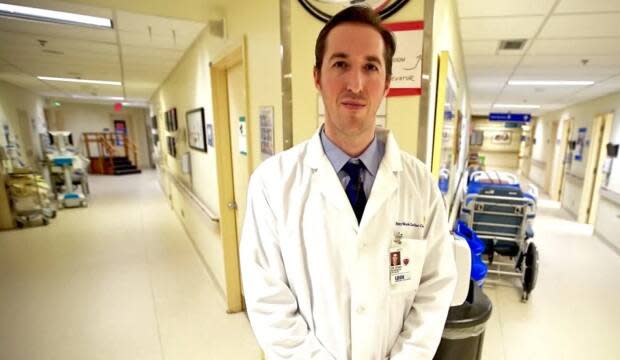Canada's Wonderland to be COVID-19 vaccination site as mass immunization plans ramp up

(Canada’s Wonderland)
Canada's Wonderland, the country's largest amusement park, will serve as a COVID-19 vaccination site in York Region, north of Toronto, as local public health officials prepare for mass immunization campaigns scheduled to begin this spring.
Plans are in place to convert large parking lots at the park into a drive-thru vaccination site that will accommodate eight lanes of traffic while using its existing entry wickets.
Cathy Jaynes, the logistics supply chief for York Region Public Health, says the site is scheduled to operate during April and May and that park management is also open to the clinic continuing beyond that.
"They've been more than generous," Jaynes said in an interview with CBC Toronto.
Officials are also planning to have a local FM radio station at the Wonderland site while it's operating to broadcast instructions to drivers. After receiving the vaccine, patients will be required to drive to another area of the site and wait at least 15 minutes before they're given documentation and allowed to leave, according York Region Public Health.
Canada's Wonderland is currently closed. It plans to reopen to the public on May 14, if permitted under provincial COVID-19 restrictions. Jaynes says the park might also host a vaccine clinic once it begins to operate normally.
Markham Fairgrounds, SoccerCity also identified
York Region will also operate a second drive-thru mass vaccination site at the Markham Fairgrounds and it is also in discussions about using the SoccerCity sports facility in Whitchurch-Stouffville.
Jaynes says the region has developed a flexible distribution plan that involves static, mobile, and drive-thru vaccination sites.
"We want to offer as much flexibility for our residents as possible," she said.
With the region being home to urban, suburban and rural residents, the drive-thru sites in particular are seen as valuable assets in the distribution plan.
"It's often a preferred option, rather than leaving your car and coming inside a clinic," Jaynes said.
Local public health authorities across Canada are now tasked with figuring out the logistics of vaccinating their residents. Depending on the community's size, that could mean plans for a few hundred or few million people.
York Region has retrofitted four transit buses to deliver vaccines at the drive-thru and mobile sites. They are equipped with freezers to store the doses. The mobile vaccine clinics will reach rural populations such as farm workers.
'Diverse approaches'
Dr. Isaac Bogoch, a Toronto-based infectious diseases specialist and member of Ontario's vaccine task force, says drive-thru sites are a "fantastic idea."
Bogoch says other jurisdictions, such as Israel, have had a great deal of success with drive-thrus. But he adds that every community will have different needs in terms of geography and population.

"I think we should be open minded to all methods as long as it can be done in a safe and efficient manner," Bogoch said in an interview with CBC News.
All local health units have been submitting their vaccine distribution plans to provincial health officials. Bogoch says they're being encouraged to find the solutions that best fit local needs.
"I think you're going to see a lot of diverse approaches to this," he said.
3-stage approach
Ontario's COVID-19 vaccination program has three stages. The first, which is now underway, involves vaccinating the high-risk population, including long-term care residents, caregivers, health-care workers, and adults in First Nation, Metis and Inuit communities.
The second stage, set to begin in March, will see the beginning of a mass vaccination campaign that will require the kind of planning and infrastructure public health units across the province are putting in place.
Older adults, people who live and work in congregate settings, and front-line essential workers, such as teachers, will all be eligible for the vaccine during this stage.
The third stage is a continuation of that mass vaccination campaign expanded to the rest of the general population. It is scheduled to begin in August.

